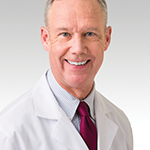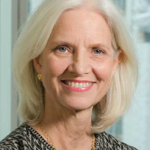 Calvin R. Brown Jr., MD, of Chicago, passed away Dec. 1, 2019. He was 66 years old.
Calvin R. Brown Jr., MD, of Chicago, passed away Dec. 1, 2019. He was 66 years old.
In the course of a medical career, you meet dozens of people who impact you in one way or another. Patients, professors, fellow students, colleagues in your practice—all help shape who we become as a physician. Sometimes, though, if you’re truly lucky, you meet someone along the way who inspires you and who makes you want to be a better person, as well as a better physician. Cal Brown was such an inspiration for me.
Colleague
I first met Cal in 1994, when I moved to Chicago after fellowship. As a new rheumatologist at Rush, I felt particularly welcomed by Cal, who was instrumental in integrating me into the community and supporting my interests in teaching the fellows and other trainees. I had no idea then that my relationship with Cal would last another 25 years, right up until his untimely death this past December. I relocated from Rush to Northwestern in 2000, and as fate would have it, Cal moved to Northwestern as well, in 2008. For the next 10 years, we worked side by side in the clinic nearly every day.
It was a privilege to work with Cal. He was humble to a fault; though he never would have claimed to be so, he was truly a master clinician. He knew his patients well and understood their needs, and he met those needs with an encyclopedic knowledge of rheumatic diseases and sports medicine. Most importantly, though, he understood that he did not know everything. While he was often my go-to guy for challenging medical dilemmas, he just as frequently came to me with questions himself. We learned from each other constantly, and in doing so, I know that we set an example for the trainees who worked with us. As Cal often told them, medical education is a lifelong process, and it is always important to “know what you don’t know” and never be afraid to ask questions.
Educator
Cal was the consummate educator. At the time of his recognition by the ACR as the 2018 Distinguished Fellowship Program Director, he was the longest serving program director in our specialty, spending 32 years in the role between Rush and Northwestern. He cared deeply about the process of medical education, but more importantly, he cared even more about the fellows in his charge. He seemed to effortlessly understand their needs, so he could provide the support that would lead to their success. When I stepped in as interim program director, after Cal got sick, I was astounded by the amount of work we’d never realized he did for the fellows. I was humbled by my inability to even come close to the standard he had set.


